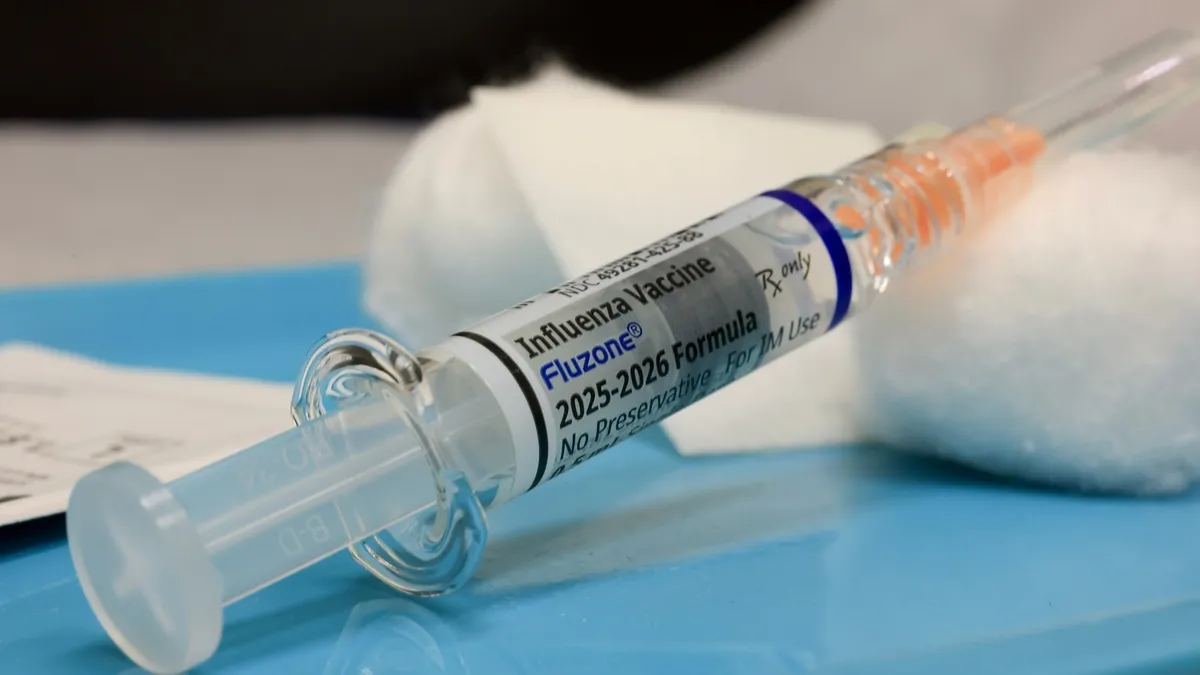
The respiratory virus season is upon us as the cold weather months approach, leading to a projected increase in cases of COVID-19, influenza, and RSV (respiratory syncytial virus). According to the Centers for Disease Control and Prevention (CDC) in its recent annual outlook report, the upcoming 2025-26 respiratory virus season is anticipated to witness a similar number of peak hospitalizations from these viruses as observed last season.
Public health experts emphasize that the most effective way to safeguard oneself against these respiratory viruses is through vaccination. Dr. Hansa Bhargava, a board-certified pediatrician at Children's Health Care of Atlanta and an adjunct professor at Emory University, highlighted the significance of vaccinations, especially for children. "We are fortunate to have these protective measures available," she stated. "It's crucial to get the vaccines recommended by your healthcare provider, not only for your own protection but also to safeguard your family against potential outbreaks."
Earlier this month, the CDC modified its guidance regarding the COVID-19 vaccine, moving away from the universal recommendation for all individuals aged 6 months and older. Instead, the current advice allows for a more personalized approach, where Americans can choose to get vaccinated based on discussions with healthcare providers. This shift in guidance follows the U.S. Food and Drug Administration's (FDA) decision to narrow the marketing authorization for updated COVID-19 vaccines, particularly for those aged 65 and older and younger individuals with underlying health conditions.
While most Americans will only require one dose of the vaccine, certain high-risk groups, including immunosuppressed patients and those aged 65 and older, may need additional doses every six months. The American Academy of Pediatrics also recommends that children aged 6 to 23 months receive a COVID-19 vaccine due to their increased risk of severe illness.
Public health experts warn that COVID-19 is expected to remain prevalent during the fall and winter months. Dr. William Schaffner, a professor of preventive medicine at Vanderbilt University Medical Center, stated, "COVID has not gone away. It continues to cause substantial illness, and we are witnessing hospitalizations across the country, particularly among those at high risk who are not up to date with their vaccines." Therefore, getting vaccinated is crucial in reducing the risk of hospitalization.
The CDC currently recommends that everyone aged 6 months and older receive an annual flu vaccine. There are various flu vaccines available this season, and recommendations may vary based on age and medical history. Standard-dose inactivated flu vaccines are available for anyone as young as 6 months, while a nasal spray flu vaccine can be given to individuals aged 2 to 49 who do not have certain medical conditions and are not pregnant.
For adults aged 18 and older, a recombinant flu vaccine, which is egg-free, is available. Additionally, Americans aged 65 and older can opt for a higher-dose vaccine due to their increased risk of severe illness. Children between 6 months and 8 years who have received two doses in previous seasons are recommended to receive one dose, while those with no prior vaccinations may require two doses.
Dr. Schaffner reassured the public about the safety of the flu vaccine, stating, "It's incredibly safe. Millions of doses are administered worldwide each year, and the most common side effects are mild, such as a sore arm or a mild fever." Flu shots can be obtained at doctors' offices, pharmacies, and health departments, and are typically covered by most insurance plans.
According to the CDC, RSV vaccines are recommended for all Americans aged 75 and older and for those aged 50 to 74 who are at increased risk of severe RSV. Individuals with chronic heart or lung disease, weakened immune systems, or those residing in nursing homes are particularly vulnerable. Currently, three RSV vaccines are FDA-approved for adult use.
Pregnant women are advised to receive a maternal RSV vaccine between 32 and 36 weeks of pregnancy to protect against RSV and to pass on antibodies to their newborn, providing protection for up to six months after birth. For infants whose mothers did not receive the maternal RSV vaccine, a monoclonal antibody shot is available for infants under 8 months and some children up to 19 months old.
Dr. Bhargava emphasized the importance of vaccinating pregnant women against RSV to protect their babies, stating, "It's crucial for babies to be safeguarded against RSV." Unlike the flu and COVID-19 vaccines, RSV vaccines are not annual shots but are recommended in late summer or early fall. Monoclonal antibody shots, on the other hand, are available seasonally.
In summary, as the respiratory virus season approaches, it is vital for individuals and families to stay informed about available vaccines and to consult healthcare providers about the best options for protection. Vaccines for COVID-19, influenza, and RSV are available at various healthcare locations and are typically covered by most insurance plans, making it easier for everyone to get vaccinated and stay healthy during the colder months.
For further information, consult your healthcare provider or visit the CDC's official website.